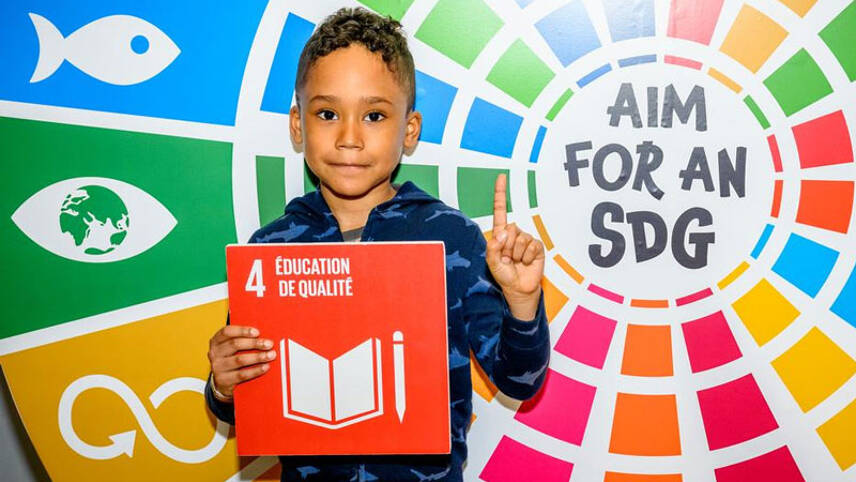Register for free and continue reading
Join our growing army of changemakers and get unlimited access to our premium content

Image: Loey Felipe for UN Photo
That is according to the UN’s latest annual report tracking progress towards each of the 17 Goals.
The top-line finding is that the annual additional cost of delivering the Goals in full, by 2030, is now $4.2trn. In 2019, the figure stood at $2.5trn.
Backwards progress on Goals relating to public health and good work in many economies, especially vulnerable developing nations, has contributed to this increased cost. The UN stated this month that global immunization rates are yet to rebound to pre-pandemic levels in regions including Africa and Latin America.
Delays have also made action more expensive in some fields, like building climate-resilient infrastructure and planning an orderly energy transition. Some of this is attributable to rising commodity costs amid global economic headwinds.
Goals with significant levels of stagnation and regression also include Goal 14, life below water; Goal 15, life on land. And no nation is on track to fully achieve SDG 13, which related to climate action. The climate and biodiversity crises are intrinsically linked, and there are also links connecting the broader SDG agenda.
For example, as drought intensified by the climate crisis continues in the Horn of Africa and affects other food producing regions, stagnation and regression is being recorded in efforts to tackle hunger. This hampers efforts to improve health and address poverty.
Across the board, the UN has stated that it is “sounding the alarm”.
The new report comes shortly after SDSN concluded that global progress on the SDGs has remained “static” for three consecutive years.
New plans, fresh urgency
UN Secretary-General Antonio Guterres said that while many countries in the Global North are facing economic challenges, those in the Global South are “staring into a financial abyss” when assessing how they can achieve the SDGs.
He said that while the promises made under the SDG framework are close to “slipping away”, there is still time for countries to make new “coordinated efforts” at key UN-led meetings this year including the SDG summit in September.
Heads of State are being called upon to recommit to seven years of transformative action on the SDGs. They should bolster this top-line commitment with proper planning for targeted policy interventions and strengthened governance.
Guterres, meanwhile, is contributing to efforts already underway to reform the global financial system. Talks were held in Paris earlier this year with a focus on climate adaptation in the Global South, and Guterres wants similar moves to be made across the wider SDG agenda.
Changes will include multilateral development banks, national and sub-national governments and all parts of the private finance system. A key focus will be making debt relief more effective and keeping capital costs for developing countries low.
Guterres said: “We face a bleak picture with challenges at every turn. But as we cross the halfway mark to 2030, one overriding truth stands out in my mind: Change is possible. Backsliding is not inevitable.
“Poverty, pollution and gender inequality are not pre-ordained. They are trends that can be reversed, problems that can be solved, tragedies that can be averted, lives that can be saved.”


Please login or Register to leave a comment.